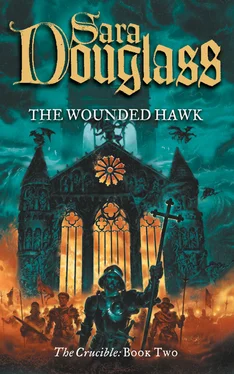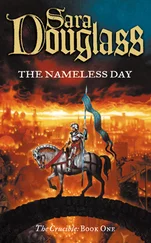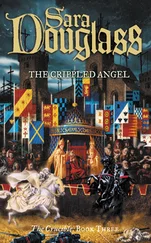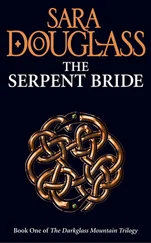John Ball, now held firmly across the saddle of one of the men, nevertheless managed to raise his head and yell one last defiant message to the crowd. “When Adam delved, and Eve span—who then was the gentleman?”
And then the soldiers were free, pushing their horses into a hard canter, and there was left only the swelling, murmuring crowd, passing the broadsheets to those who could read out loud.
“What did you know of this?” Lancaster said, throwing the broadsheet down on the table before Bolingbroke.
“My lord,” Bolingbroke said, then hesitated, picking the broadsheet up as gingerly as if it were gunpowder.
Lancaster’s furious eyes swung towards Neville, who stood just behind Bolingbroke’s shoulder. Neither of the two younger men were sitting. They had been summoned into Lancaster’s presence just a few minutes before.
“My lord,” Bolingbroke said again. “I had known that Master Wycliffe and several of his men were travelling through Kent—”
“And you had not informed me? Sweet Jesu, Hal, why not? And why not stop them? Do you think I would be pleased to have men known to be of my household engaged in such seditious activities? Ah! Wycliffe has gone too far this time.”
Neville knew he was going to earn Lancaster’s anger for not informing him personally of Wycliffe’s visit to Halstow Hall, but all he felt for the moment was relief. Lancaster had finally seen the danger in nurturing the demon Wycliffe, and now, perhaps, would go to the lengths necessary to stop him.
“I only found out myself a few days ago,” Bolingbroke said. “I had thought to gather greater intelligence before informing you.”
“My lord,” Neville said. “This is my error, not my Lord of Hereford’s. The day before Salisbury came to Halstow Hall to summon me back to London, I received a visit from Wycliffe, accompanied by Wat Tyler—”
Lancaster sprang out of his chair. “What?”
“—and two Lollard priests, John Ball and Jack Trueman. My lord, I do beg your forgiveness, but they told me they travelled at your pleasure towards Canterbury. I had not thought to comment further on it to you.”
Lancaster muttered an obscenity, moving to stare out a window before turning back to the other two men. “And now Wycliffe and Tyler and the other two are roaming about the south-east, tacking sedition to every wall they can find? No, do not answer that, I do not want to hear the affirmative!
“Well,” he sighed, and rubbed at his beard, thinking, “at least Ball is incarcerated in my Lord of Canterbury’s prison and is, for the moment, the lesser problem … unless he decides to implicate my entire household in treason.”
“My lord,” Bolingbroke said, stepping forward, “he surely will not do that!
“Does anyone know where the other three are?” Neville said.
“Wycliffe, yes,” Lancaster said. “Tyler and Trueman, no. Good Master Wycliffe is in Rochester, where he has been some few days. I have sent men—forty trusted men-at-arms—to fetch him away.”
“You will not bring him back here, my lord!” Neville said.
Lancaster glanced at him. “No, I won’t have him within shouting distance of London, Tom. He goes to my manor of Lutterworth in Leicestershire where he can contemplate the sins of the world in its walled herb garden. As for Tyler—what has gotten into the man?—and Trueman … they have vanished into the labouring population of Kent. Word is out for their apprehension, but I know Wat better than most men, and if he doesn’t want to be found …”
“And Richard?” Bolingbroke asked softly.
Lancaster actually looked relieved. “The three of us in the room are the only ones who know of Wycliffe’s involvement, and that of Wat Tyler. Those two are the only ones publicly associated with my household. The broadsheets, thank God, are unsigned, and do not mention Wycliffe’s name, or the name of any of my house. As far as John Ball is concerned, my Lord of Canterbury has agreed to hold him without public comment for the moment.”
Neville relaxed a little. Simon Sudbury, the Archbishop of Canterbury, was heavily indebted to Lancaster for supporting Sudbury’s election to the archbishopric some years ago.
“So we must hope Tyler and Trueman cause no disturbance that might come to the king’s ear,” Bolingbroke said.
“Aye,” Lancaster said. “That we must.”
John Ball huddled a little deeper into his thin robe, closed his eyes against his dreary, dirty cell and prayed to Jesus Christ for strength.
Then footsteps sounded outside the door, and Ball’s eyes flew open.
A key rattled in the lock, and the door opened.
One of the guards stood there, carrying a bundle of warm clothing and a bag of food.
“From a friend,” the guard said, tossing both clothing and the bag of food to Ball. “A good man, a former sergeant-of-arms of mine. He said to tell you to be strong and of good cheer, for when the time comes, yours shall be the voice to strike the match.”
Ball nodded, then, as the door closed and locked, once again closed his eyes, this time to thank Christ for the love of a man known as Wat Tyler.
Vigil of the Feast of St Michael
In the first year of the reign of Richard II
(Wednesday 28th September 1379)
The Black Prince’s victory at Poitiers had crippled French pride and determination. Not only had the cursed English ground French pride into the mud, but King John had been captured, and the flower of French nobility had been lost to either the arrows of English longbowmen or the ransom demands of English nobles.
And then, out of all of this calamity, God in His boundless goodness sent hope to the virtuous French in the sweet form of the miraculous virgin, Joan, and judgement to the vile English in the simultaneous deaths of both Edward III and his warrior son, the Black Prince.
At the darkest day, when the French were stricken with defeat, God had opened the door for a Gallic triumph.
Now, Isabeau de Bavière was determined to slam it shut in His face.
“And so, my darling boy,” Isabeau said, enjoying every moment, “I did so sign away your heritage and your throne. It was but truth, and I was bound to speak it some day. Here,” and she held out the copy of the Treaty of Westminster to Charles, who stared at it pallid-faced and tormented.
Isabeau stood there with her arm extended just long enough to make the moment intensely uncomfortable, then she let the treaty flutter to the floor.
“Well,” she said, “no matter.”
She stepped past her son and smiled maliciously at the gathering standing behind Charles in the hall of la Roche-Guyon. “Why the surprise over all your faces? Have you not called me the harlot and whore behind my back for decades? Well, now I confess it.” Isabeau threw apart her arms in a dramatic gesture. “I am so the whore and harlot! ‘Twas indeed the Master of Hawks—oh, how I wish I could remember his name!—who put Charles inside me with his peasantish vigour and odious onion breath. And … see!”
Isabeau clasped her hands together before her face, and turned back to Charles as if enthralled by the very sight of him. “Has my son not inherited his father’s penchant for the stables? I swear before God he’d be far more comfortable atop a dung heap than standing in this grand hall. And … see!”
Now Isabeau whipped about and stared at the girl, Joan, standing thick and dark in men’s clothing to one side.
“Has he not also inherited his father’s taste for peasant company? His companion betrays him, for my son prefers the stench of peasants to the sweet spice of nobility.”
Charles’ face was now so white that he looked as if he might faint. In contrast to bloodless cheeks, his pale blue eyes were brilliant, brimming with tears of mortification.
Читать дальше












